Stephen Merrill Friend
age ~75
from San Diego, CA
- Also known as:
-
- Stephen M Friend
- Stephen Merril Friend
- Stephen Frida Friend
- Stephen Meprill Friend
- Stephen Ma Mfcc
- Frida G Friend
- Mfcc Stephen Ma
- Stephen D
- Friend Stephen Merrill
- Stephen Goldstein
- Phone and address:
-
6949 Camino Revueltos, San Diego, CA 92111
(818)6189110
Stephen Friend Phones & Addresses
- 6949 Camino Revueltos, San Diego, CA 92111 • (818)6189110
- Henderson, NV
- Litchfield Park, AZ
- Cibolo, TX
- Schertz, TX
- Live Oak, TX
- Avondale, AZ
- Simi Valley, CA
- Denver, CO
- Los Angeles, CA
- Agoura Hills, CA
Us Patents
-
Methods Of Ranking Oligonucleotides For Specificity Using Wash Dissociation Histories
view source -
US Patent:6673536, Jan 6, 2004
-
Filed:Sep 29, 1999
-
Appl. No.:09/408582
-
Inventors:Roland Stoughton - San Diego CA
Julja Burchard - Kirkland WA
Stephen H. Friend - Seattle WA -
Assignee:Rosetta Inpharmatics LLC. - Kirkland WA
-
International Classification:C12Q 168
-
US Classification:435 6, 435 911, 435 912, 536 231, 536 243
-
Abstract:The present invention provides methods and systems, particularly computer systems, for determining the relative specificity with which a particular polynucleotide molecule hybridizes to a polynucleotide probe. For example, the methods and systems of the invention enable a user to compare the specificity with which different polynucleotides hybridize to a given probe and/or rank these polynucleotides according to their specificity to that probe. The methods and systems of the invention also enable a user to compare the specificity with which a particular polynucleotide hybridizes to different probes, and/or rank those different probes according to their specificity for that particular polynucleotide.
-
Computer Systems For Identifying Pathways Of Drug Action
view source -
US Patent:6859735, Feb 22, 2005
-
Filed:Aug 13, 1999
-
Appl. No.:09/374565
-
Inventors:Roland Stoughton - San Diego CA, US
Stephen H. Friend - Seattle WA, US -
Assignee:Rosetta Inpharmatics LLC - Seattle WA
-
International Classification:G01N033/48
G01N033/53
C12Q001/68
C12P021/06
G06G007/48 -
US Classification:702 19, 435 6, 435 71, 435 691, 703 11
-
Abstract:The present invention provides methods and computer systems for identifying and representing the biological pathways of drug action on a cell The present invention also provides methods and computer systems for assessing the significance of the identified representation and for verifying that the identified pathways are actual pathway of drug action. The present invention also provides methods and computer systems for drug development based on the methods for identifying biological pathways of drug action, and methods and computer systems for representing the biological pathways involved in the effect of an environmental change upon a cell.
-
Methods For Identifying Pathways Of Drug Action
view source -
US Patent:59653523, Oct 12, 1999
-
Filed:May 8, 1998
-
Appl. No.:9/074983
-
Inventors:Roland Stoughton - San Diego CA
Stephen H. Friend - Seattle WA -
Assignee:Rosetta Inpharmatics, Inc. - Kirkland WA
-
International Classification:C12Q 100
G01N 3353
G06F 1714
C12N 1500 -
US Classification:435 4
-
Abstract:The present invention provides methods for identifying and representing the biological pathways of drug action on a cell by: (i) measuring responses of cellular constituents to graded exposures of the cell to a drug of interest; (ii) measuring the responses of cellular constituents to perturbations in one or more biological pathways of the cell; and (iii) scaling a combination of the measured pathway responses to fit the measured drug responses best according to an objective measure. In alternative embodiments, the present invention also provides for assessing the significance of the identified representation and for verifying that the identified pathways are actual pathway of drug action. In various embodiments, the effects on the cell can be determined by measuring gene expression, protein abundances, protein activities, or a combination of such measurements. In various embodiments, perturbation to a biological pathway in the cell can be made by use of titratable expression systems, use of transfection systems, modification to abundances of pathway RNAs, modifications to abundances of pathway proteins, or modifications to activities of the pathway proteins.
-
Methods For Predicting Age And Identifying Agents That Induce Or Inhibit Premature Aging
view source -
US Patent:20190032139, Jan 31, 2019
-
Filed:Sep 25, 2018
-
Appl. No.:16/141076
-
Inventors:- Oakland CA, US
- Seattle WA, US
Trey Ideker - La Jolla CA, US
Stephen H. Friend - Seattle WA, US
Justin Guinney - Seattle WA, US -
International Classification:C12Q 1/6883
C12Q 1/6881
G01N 33/53
G01N 33/574 -
Abstract:The invention provides for methods for predicting age of a subject based on the epigenome of the subject.
-
Methods For Predicting Age And Identifying Agents That Induce Or Inhibit Premature Aging
view source -
US Patent:20150259742, Sep 17, 2015
-
Filed:Nov 12, 2013
-
Appl. No.:14/442089
-
Inventors:- Oakland CA, US
- Seattle WA, US
Trey Ideker - La Jolla CA, US
Stephen H. Friend - Seattle WA, US
Justin Guinney - Seattle WA, US -
International Classification:C12Q 1/68
-
Abstract:The invention provides for methods for predicting age of a subject based on the epigenome of the subject.
License Records
Stephen Henry Friend
License #:
MT006662T - Expired
Category:
Medicine
Type:
Graduate Medical Trainee
Name / Title
Company / Classification
Phones & Addresses
President, Treasurer
The Friend Community Impact Foundation of Monroe County
4015 Archcrest Cir, Las Vegas, NV 89147
Wikipedia References

Stephen Friend
Work:
Position:
President
Education:
Specialty:
Director
Area of science:Biochemistry

Stephen Friend
Resumes

Stephen Friend
view source
Stephen Friend
view source
Stephen Friend
view sourceLocation:
United States
Lawyers & Attorneys
Plaxo

Stephen Friend
view sourceFriend and Co Lawyers
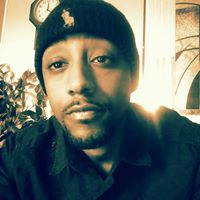
Stephen Friend
view source
Stephen Friend
view source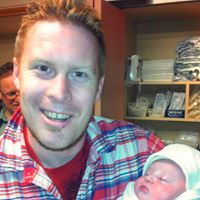
Stephen Friend
view source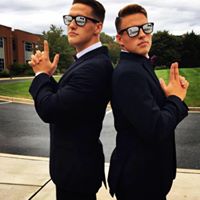
Stephen Friend
view source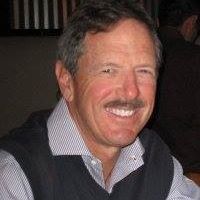
Stephen Friend
view source
Stephen Friend
view source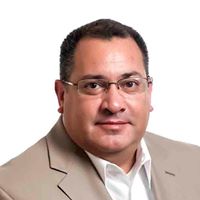
Stephen Friend
view source
Stephen Friend
view sourceYoutube
Classmates

Stephen Friend (Stephen J...
view sourceSchools:
Neil Cummings School Corte Madera CA 1962-1966
Community:
Kathy Tucker, Jayne Taylor, John Spillane, Michael Gogin

Stephen Friend
view sourceSchools:
Midd Freshman High School Middletown OH 2000-2004
Community:
Mark Haynes, Cynthia Caudell, Mark Campbell, Gail Hamm, Rolf Erisman

Stephen Friend
view sourceSchools:
Alfred E. Smith Public School 163 New York NY 1975-1977
Community:
Ivette Guerra, James Palmer, Marion Phillips, Barbara Gordon, Angel Ramos

Stephen Friend (ODell)
view sourceSchools:
Columbian Elementary School Independence MO 1944-1950, Spring Branch Elementary School Independence MO 1950-1953
Community:
Danny Clark, Charlene Johnston, Pansy Sleeper, Ken Prater, Jpyce Halsey, Ron Lawson, Russell Cooksey, Mike Lucito, Karen Bradley, Connie Johnson, Patricia Smith

Stephen Friend, Aberdeen ...
view source
Find a Friend from Stephe...
view sourceNews

Mysterious mutants: 13 masked people should have devastating diseases—but don't
view source- cystic fibrosis and those that cause severe skeletal malformations. The authors, led by Stephen Friend of the Icahn School of Medicine at Mount Sinai in New York, hypothesize that these 13 apparently normal adults have other genetic elements that compensate or buffer the effects of those mutations.
- Date: Apr 12, 2016
- Category: Health
- Source: Google

'Genetic superheroes' are real and could lead to life-saving treatments – but nobody can talk to them
view source- "There's an important lesson here for genome scientists around the world: the value of any project becomes exponentially greater when informed consent policies allow other scientists to reach out to the original study participants, said Stephen Friend, the other Resilience Project co-founder.
- Date: Apr 12, 2016
- Category: Sci/Tech
- Source: Google

Genetic 'superheroes' survive despite devastating mutations: Researchers
view source- Dr. Stephen Friend, president of Seattles Sage Bionetworks, and his colleagues at the Icahn School of Medicine at Mount Sinai in New York, sifted through a massive data set pooled from a dozen previous genetic studies.
- Date: Apr 12, 2016
- Category: Health
- Source: Google

Detailed Study Should Be Conducted On Those Who Escaped Genetic Disorders
view source- According to a senior researcher Dr. Stephen Friend, if we find out as to how some children manage to escape their genetic composition, it would be instrumental in developing solutions for certain most horrible birth defects known to human race.
- Date: Apr 12, 2016
- Category: Health
- Source: Google

'Buffer genes' may protect these 13 people from rare genetic diseases
view source- The study is a first step in the Resilience Project, an effort led by Stephen Friend of Sage Bionetworks in Seattle, Washington, and Eric Schadt of the Icahn School of Medicine at Mount Sinai in New York City. They want to find healthy individuals who have genetic mutations that usually cause seriou
- Date: Apr 11, 2016
- Category: Health
- Source: Google

13 amazing people somehow skirted genetic disaster
view source- You can imagine the level of frustration, said the studys lead researcher, Stephen Friend, the president of the nonprofit Sage Bionetworks and a genomics professor at the Icahn School of Medicine at Mount Sinai in New York. It is almost as if you got to take the wrapping off the box but you coul
- Date: Apr 11, 2016
- Source: Google

Unexplained 'Genetic Superheroes' Overcome Disease Mutations
view source- "If you want to develop therapies for prevention, if you want to come up with ways of not just finding the cause, but [also] ways of preventing the manifestations of disease," then these individuals may help find a way, Stephen Friend, a co-author of the study and a researcher at Sage Bionetworks in
- Date: Apr 11, 2016
- Category: Health
- Source: Google

Why Do Some Kids Escape Terrible Genetic Disorders?
view source- Figuring out how certain people are able to dodge their genetics could provide solutions to some of mankind's worst birth defects, said senior researcher Dr. Stephen Friend. He is the president of Sage Bionetworks, a nonprofit biomedical research organization in Seattle.
- Date: Apr 11, 2016
- Source: Google
Myspace

Stephen Friend (Stephen) ...
view sourceStephen Friend (Stephen)'s profile on Myspace, the leading social entertainment destination powered by the passion of our fans.
Flickr
Googleplus

Stephen Friend
Education:
Anne Arundel Community College - Computer Science, DeVry University - Computer Engineering, Cochise College - Electronics Technology

Stephen Friend

Stephen Friend
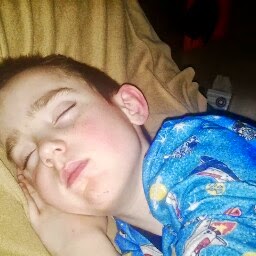
Stephen Friend

Stephen Friend

Stephen Friend
Get Report for Stephen Merrill Friend from San Diego, CA, age ~75













